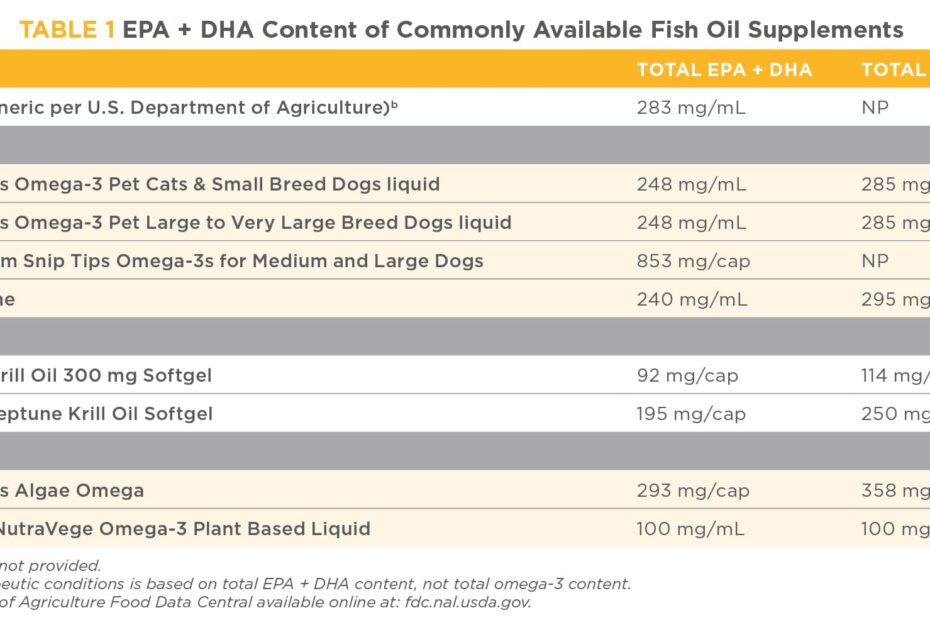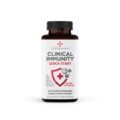Are you curious about how fish oil can benefit your feline friend? If so, you’re in the right place.
Understanding the right fish oil dosage for cats can make a big difference in your pet’s health and happiness. Imagine your cat with a shiny coat, lively playtime energy, and robust overall well-being. Fish oil, packed with omega-3 fatty acids, is more than just a supplement; it’s a game-changer for your cat’s health.
But how much is too much, and what amount is just right? Dive into our guide to discover the perfect balance that will have your cat purring with contentment. Keep reading to learn how you can transform your kitty’s life with the right fish oil dosage!
Also Read
Benefits Of Fish Oil For Cats
Cats can benefit from fish oil, helping improve their coat health and joint mobility. Proper dosage ensures they receive essential omega-3 fatty acids without side effects. Always consult a veterinarian to determine the right amount for your cat’s specific needs.
Adding fish oil to your cat’s diet can offer numerous health benefits that can improve their overall well-being. If you’re considering this supplement, it’s vital to understand what it can do for your feline friend. Let’s explore some of the most significant benefits of fish oil for cats.Improved Skin And Coat Health
Fish oil can transform your cat’s skin and coat. Rich in omega-3 fatty acids, it can reduce itching and inflammation. Your cat’s fur may become shinier and softer, just like my cat, Whiskers, who now enjoys fewer bouts of scratching and has a silky coat.Joint And Mobility Support
As cats age, joint pain and mobility issues often arise. Fish oil can help ease stiffness and improve movement. Is your cat struggling to leap onto their favorite perch? Adding fish oil may make those jumps easier again.Enhanced Cognitive Function
Omega-3 fatty acids are known for supporting brain health. Older cats can experience cognitive decline, but fish oil might help maintain mental sharpness. Has your senior cat been acting forgetful? Fish oil could be the boost they need to stay alert.Heart Health And Circulation
A healthy heart is crucial for a long life. Fish oil can support cardiovascular health by improving circulation and reducing harmful cholesterol levels. Consider how much more playful your cat could be with a heart that beats strong and steady. When choosing a fish oil supplement, dosage matters. Too much can cause issues, while too little might not offer the benefits you seek. Always consult your vet to find the right balance. By understanding these benefits, you can make informed choices for your cat’s diet. Have you noticed any changes in your cat after introducing fish oil? Share your experiences and help others learn the best way to care for their furry companions.
Credit: www.dorwest.com
Choosing The Right Fish Oil
Choosing the right fish oil for your cat is important. It ensures optimal health benefits. Not all fish oils are the same. Some are better suited for cats than others. Understanding the differences can help you make an informed choice. Let’s dive into the key aspects to consider.
Types Of Fish Oil
There are several types of fish oil available. Common options include salmon oil, sardine oil, and mackerel oil. Each type has different benefits. Salmon oil is rich in omega-3 fatty acids. Sardine oil is known for its anti-inflammatory properties. Mackerel oil offers a good balance of essential nutrients. Choose based on your cat’s health needs.
Quality And Purity Considerations
Quality matters when selecting fish oil. High-quality oils are free from contaminants. They contain fewer heavy metals and toxins. Purity is crucial for your cat’s safety. Look for oils tested by third parties. Check labels for purity certifications. The best oils are pharmaceutical grade.
Sourcing And Sustainability
Sourcing affects the environmental impact of fish oil. Sustainable practices protect marine life. Choose fish oils from responsibly managed fisheries. Sustainable products often have certifications. These include Marine Stewardship Council (MSC) labels. They ensure environmental responsibility. This choice supports both your cat and the planet.
Determining The Correct Dosage
Fish oil can benefit cats greatly. It improves skin and coat health. It also supports heart function and reduces inflammation. Correct dosage is crucial for effectiveness and safety. Overdoing it can lead to complications. Under-dosing limits benefits. Understanding the right dosage is essential.
Factors Influencing Dosage
Several factors affect fish oil dosage for cats. Age plays a significant role. Older cats may require different amounts than younger ones. Health condition is another factor. Cats with specific ailments might need tailored dosages. Lifestyle and diet should also be considered. Active cats might process supplements differently. Each factor needs attention for accurate dosing.
Weight-based Dosage Guidelines
Weight is a primary factor in determining fish oil dosage. Most guidelines suggest 20-55 mg of EPA and DHA per pound. This range ensures optimal benefits. It minimizes risks of over-supplementation. It’s important to weigh your cat accurately. Adjust the dosage based on weight changes over time.
Consulting With A Veterinarian
Veterinary advice is crucial for fish oil dosage. Professionals can provide tailored recommendations. They consider your cat’s health history and current needs. A vet can monitor your cat’s response to fish oil. They adjust dosage as needed for safety and effectiveness. Consulting a vet ensures your cat receives the right amount.
Administering Fish Oil To Cats
Administering fish oil to cats might seem like a small task, but it can make a big difference in their overall health. Fish oil is packed with omega-3 fatty acids, which are great for your cat’s coat, joints, and even their brain function. But how do you get your feline friend to consume this beneficial supplement without a fuss? Let’s dive into some practical methods.
Methods Of Administration
Giving fish oil to your cat can be done in a few different ways. The simplest method is using a dropper to place the oil directly into their mouth. Some cats may resist this, but others might not mind. If your cat is on the fussier side, you could try mixing the oil with a small amount of a treat they love.
Another option is to find fish oil capsules designed for pets. These can be broken open and sprinkled onto food, or given as a pill if your cat is accustomed to taking medication. Always ensure the dosage aligns with your veterinarian’s advice.
Incorporating Into Diet
Mixing fish oil into your cat’s food is a popular method. You can add it to wet food for easier blending. The oil should be evenly distributed to ensure your cat consumes the entire dose. If your cat prefers dry food, consider mixing the oil with a small amount of wet food first.
Consistency is key. Slowly introduce fish oil into meals over several days. This gradual approach helps your cat adjust to the new flavor without overwhelming their taste buds. Remember, patience and persistence often pay off.
Addressing Taste Preferences
Cats can be picky eaters. If your cat turns up their nose at fish oil, try a flavored variety. Some brands offer salmon or tuna-flavored options that might appeal more to your cat’s palate. Observe your cat’s reaction to different flavors and adjust accordingly.
Have you ever tried adding a few drops to your cat’s favorite treat? This can be an effective trick to mask the taste of fish oil. Experiment with different treats or mix-ins until you find the winning combination.
Ultimately, your goal is to make fish oil a tasty part of your cat’s diet. How will you tailor this healthy addition to suit your feline friend’s preferences?
Potential Side Effects
Fish oil dosage for cats can lead to mild side effects. Some cats might experience diarrhea or an upset stomach. It’s important to monitor your cat’s reaction and adjust the dosage if needed.
Fish oil supplements offer numerous benefits for cats, like healthier skin and a shinier coat. Yet, it’s crucial to be aware of potential side effects. Knowing these side effects helps ensure your feline friend remains healthy. Recognizing signs of adverse reactions aids in early intervention. This section explores possible side effects of fish oil for cats.Recognizing Allergic Reactions
Cats may develop allergies to fish oil. Watch for signs like itching or redness. Swelling around the face or paws indicates a problem. Sneezing or coughing can also occur. If your cat shows these symptoms, stop the supplement immediately. Consult your vet for guidance.Digestive Upsets And How To Manage
Digestive issues are common with fish oil. Vomiting or diarrhea may happen initially. Gradually introducing fish oil can ease these symptoms. Start with a small dose, then increase slowly. Mix it with food to reduce stomach upset. Ensure your cat stays hydrated. This helps manage any digestive discomfort.Monitoring Long-term Effects
Long-term fish oil use requires careful monitoring. Observe your cat for any changes in behavior. Weight gain or loss can be a concern. Regular vet check-ups ensure your cat’s health. Blood tests may be necessary to check for issues. This proactive approach helps identify any long-term effects.
Credit: vetchick.com
Alternatives To Fish Oil
Fish oil is a popular supplement for cats, known for its omega-3 benefits. But not all cats tolerate fish oil well. Some may have allergies or dislike the taste. Luckily, there are alternatives to fish oil that provide similar benefits. These alternatives are suitable for cats with specific dietary needs.
Plant-based Omega-3 Sources
Chia seeds offer a plant-based omega-3 source for cats. They contain alpha-linolenic acid (ALA). ALA can convert to DHA and EPA, beneficial fatty acids. Flaxseeds are another option. They also contain ALA, promoting healthy skin and coat. Pumpkin seeds are rich in omega-3s too. These seeds can support your cat’s overall health. Always grind seeds for better absorption. Consult your vet before adding seeds to your cat’s diet.
Other Supplements For Cats
Krill oil is a potent alternative to fish oil. It contains high levels of omega-3 fatty acids. Krill oil is often easier for cats to digest. Algal oil is another supplement option. It provides a direct source of DHA. Algal oil is sustainable and vegetarian. Hemp oil offers omega-3 and omega-6 fatty acids. It supports joint health and reduces inflammation. Always consult your vet for appropriate dosages.
Comparing Benefits And Risks
Plant-based sources are less allergenic than fish oil. They suit cats with fish allergies. These sources may offer lower DHA and EPA levels. Some cats may not convert ALA effectively. Krill oil is rich in antioxidants. It may be costlier than fish oil. Algal oil is sustainable but might lack EPA. Hemp oil provides balanced omega fatty acids. It may interact with other medications. Weigh the benefits and risks for your cat’s health.

Credit: todaysveterinarypractice.com
Frequently Asked Questions
How Much Fish Oil Should I Give My Cat?
For cats, the recommended dosage is generally 20-55 mg of EPA and DHA per pound of body weight daily. Consult your vet before starting any supplementation. It’s crucial to choose a high-quality fish oil product specifically formulated for pets to ensure safety and effectiveness.
Is Fish Oil Safe For Cats?
Yes, fish oil is safe for cats when administered in proper dosages. It offers numerous health benefits, including improved skin and coat condition, joint support, and enhanced cardiovascular health. Always consult your veterinarian before introducing fish oil into your cat’s diet to ensure it’s suitable for your pet.
Can Fish Oil Help With Cat Allergies?
Fish oil can help manage allergies in cats by reducing inflammation and improving skin health. Omega-3 fatty acids found in fish oil have anti-inflammatory properties that may alleviate allergic reactions. Consult your vet for personalized advice and proper dosage recommendations for your cat’s specific needs.
What Are The Benefits Of Fish Oil For Cats?
Fish oil provides several benefits for cats, including improved skin and coat health, joint support, and enhanced cognitive function. Omega-3 fatty acids, particularly EPA and DHA, offer anti-inflammatory properties that can improve overall well-being. Always consult your veterinarian before starting any new supplements for your cat.
Conclusion
Choosing the right fish oil dosage for cats is important. It ensures their health and well-being. Consult a vet for accurate advice. They can recommend the best dosage for your cat. Fish oil supports joint health and shiny fur. It also boosts immune function.
Start slow and adjust as needed. Watch for any changes in your cat’s behavior. A balanced diet enhances fish oil benefits. Always prioritize your pet’s safety and comfort. Regular check-ups help monitor their progress. Keep your cat healthy and happy with proper care.
Fish oil can be a valuable addition.




